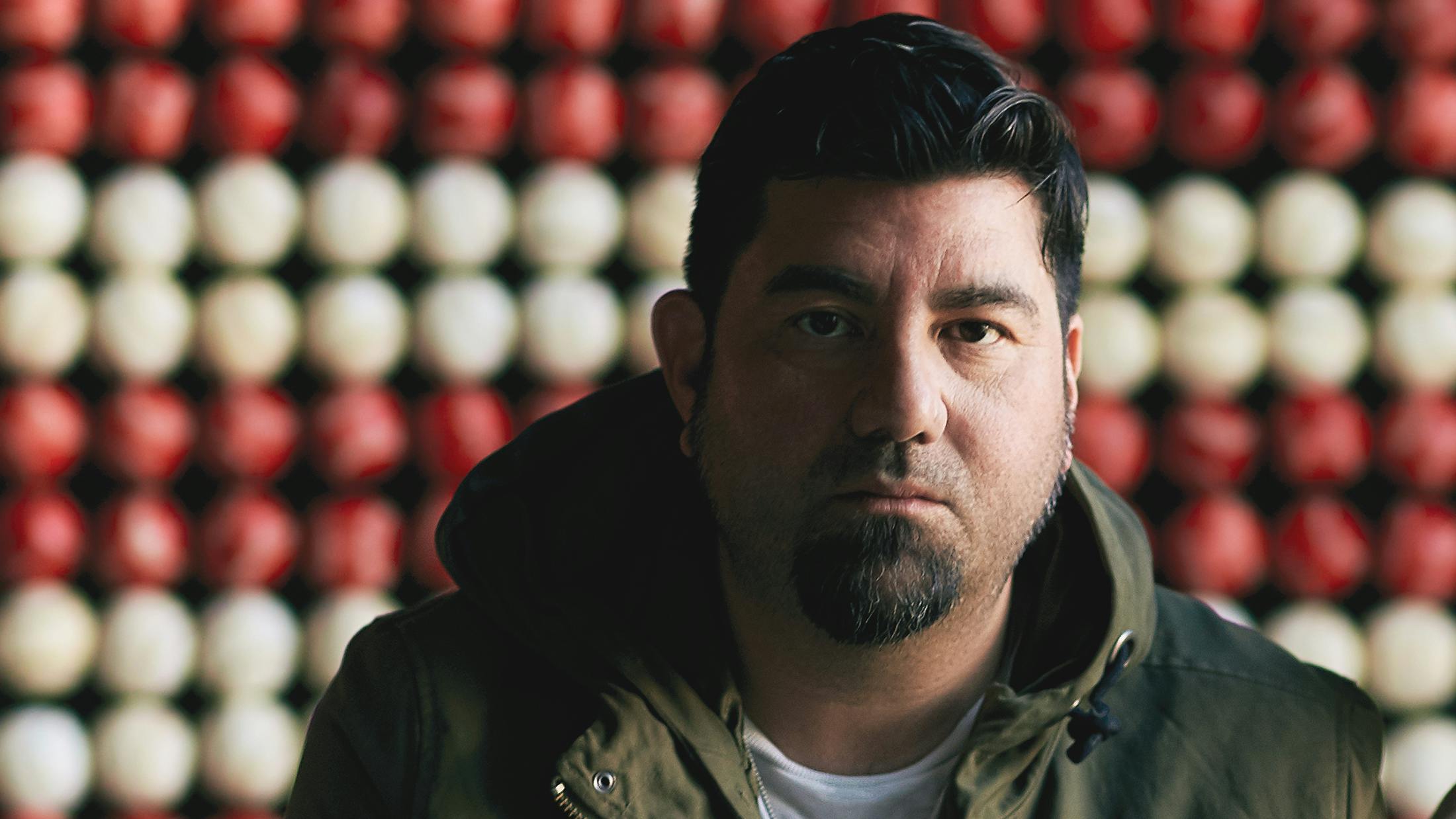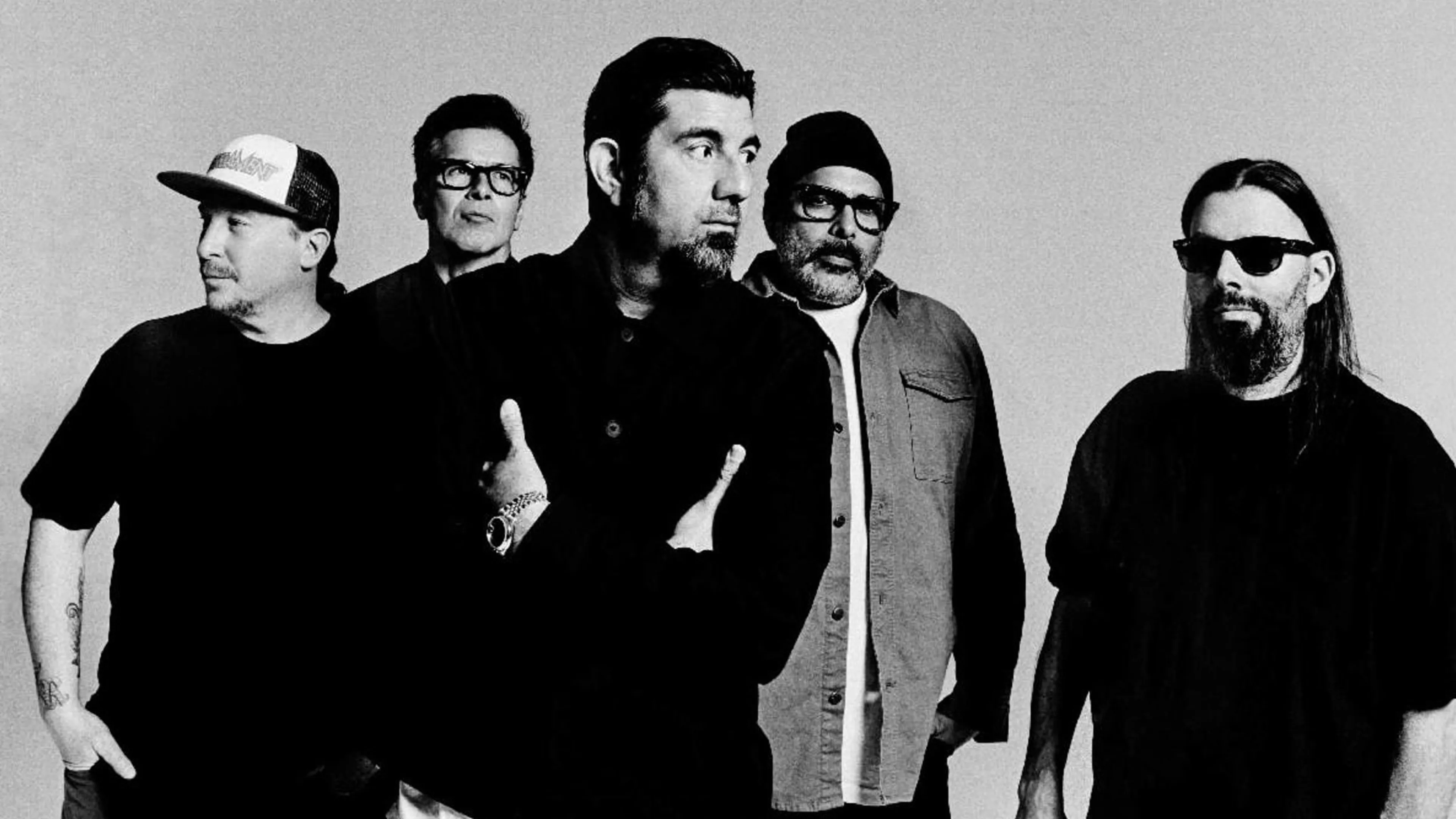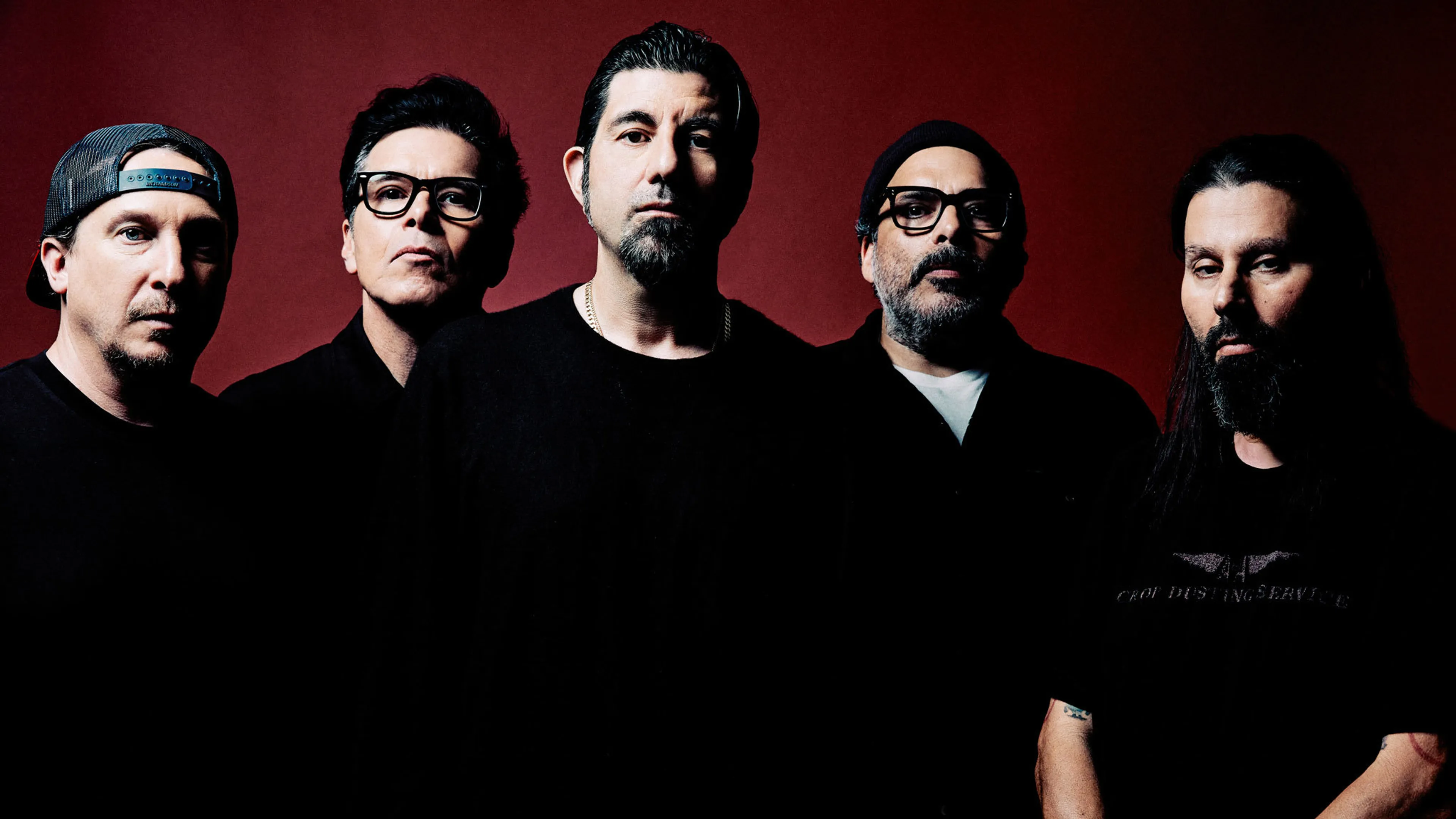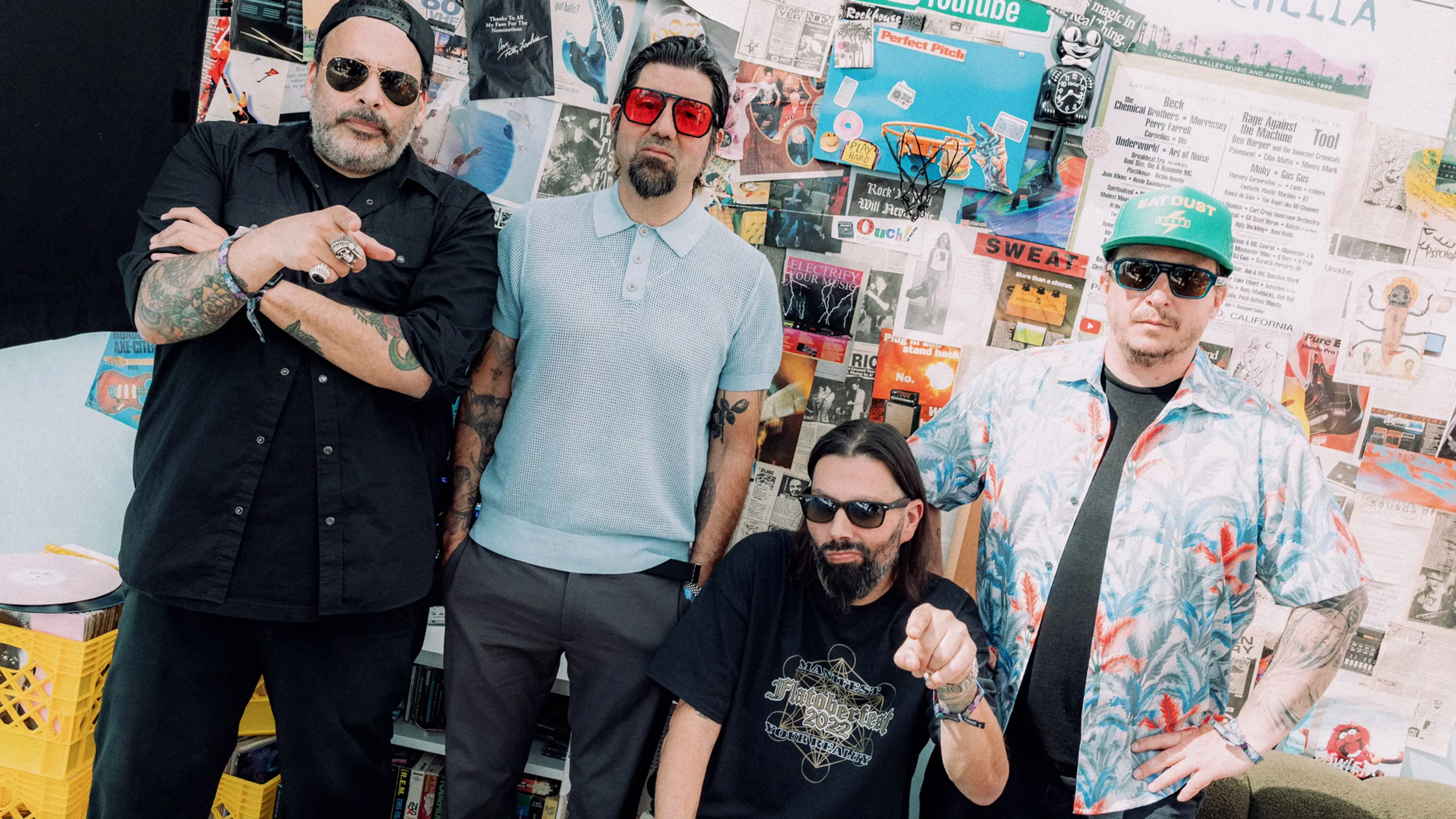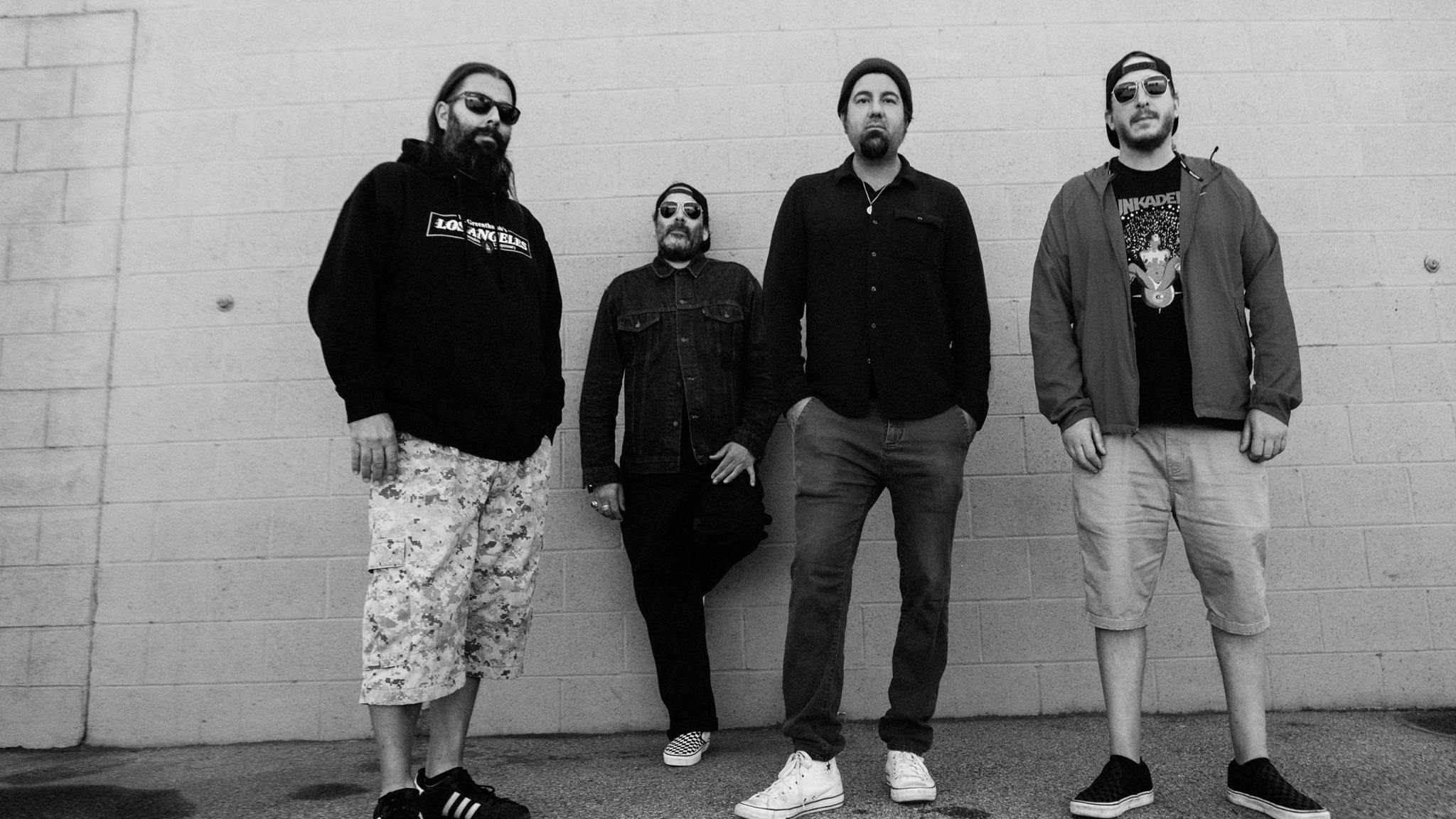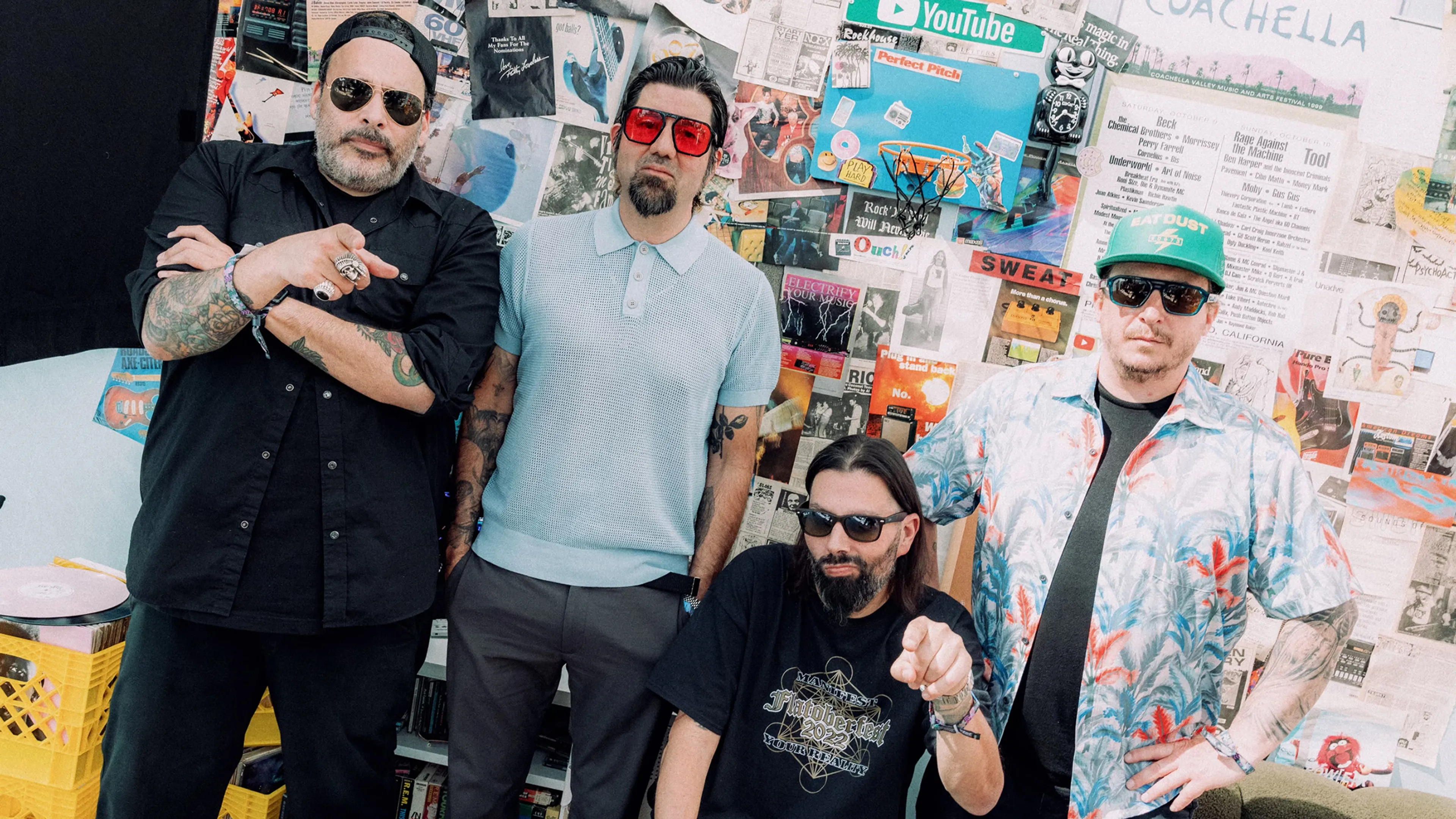What was the first ever Deftones show like?
“We played a show at a neat, local place here in Sacramento, The Cattle Club. It was maybe a 250-capacity room, but we had seen many great shows there. I saw Smashing Pumpkins there, I saw Nirvana there. When bands used to come through Sacramento, that’s where they played. I think we had just enough songs to maybe play for a half hour. We wanted to play a show there, but obviously they weren’t going to book a band that they’d never heard. And we had no demo tape, nothing – it was all hype. So they said, ‘Okay, we’ll book you on a Thursday night, but you gotta buy the tickets from us and you can either sell them on or give them away.’ So that’s what we did. We bought, like, 200 tickets. The tickets were $1 each, so we had to spend $200, but then, we could sell them for $3. So we sold some of them to people at school – we were still in high school at the time – so we basically gave them away to our friends and the show was actually packed. I think people were more curious about what the hell we were going to do.”
Was it a good show?
“I remember the show being good, because we were just having fun. I don’t know if this exists on film – I doubt it does – but I can pretty much be sure that we didn’t sound good, or if we did, we didn’t know. Honestly, when we started the band we didn’t really have an idea of what we were trying to do. We didn’t say, ‘Oh, we want to make a band that’s like this or like that.’ We just pretty much made noise. That’s really not changed that much to this day.”
Did that same approach apply to the creative process as well?
“Well, these days, when we make a record we never go in saying, ‘We want to make this type of record.’ We just start making noise, and then the noise turns into songs, sometimes. Sometimes not. Sometimes it doesn’t work. It was kind of that same mentality back then. We got in a room, we made some noise, and we made these things that were kind of songs. I mean, it probably wasn’t formatted that well. None of us had any real songwriting background. I certainly never had and I didn’t have any singing background either. Besides Abe [Cunningham, drums], he was probably the most talented one in the band as far as like, where, he could actually play his instrument. He’d been playing since he was, like, three years old. So he was sort of the foundation, and Stephen [Carpenter, guitar] as well, was always very, and he still is, consistent. So we sounded tight, I guess, but our direction was undefined and we didn’t know what we were doing. But we kind of didn’t care. And I think that was maybe some of the charm, in the beginning. Maybe it still is some of the charm, that there’s not really a way to describe what it is that we do. It’s what happens when Stephen and Abe and Chino and, at that time, Chi, get together and make some noise.”
What were those first Deftones songs like?
“At the time I don’t think we played that much that lasted. We did have a tape at the time. We had a two-song demo that we recorded ourselves with Engine No. 9 and 7 Words – two of probably the biggest songs on [1995 debut album] Adrenaline, but in demo form. We had some really creepy artwork on the front; a picture we found of these two kids with bandanas over their faces in a field in the middle of nowhere. There was no information, just this weird picture and those two songs. [Producer] Ross Robinson got one of those tapes, and he played it to the guys in Korn. So then, I think it was Brian [‘Head’ Welch, guitar], called me up, saying, ‘Yo, we’ve got to play some shows together.’ Finally we did – we booked a show with them in Los Angeles at the Dragonfly. And that was the craziest thing ever, because we’d never heard them, and they’d never heard us.”
